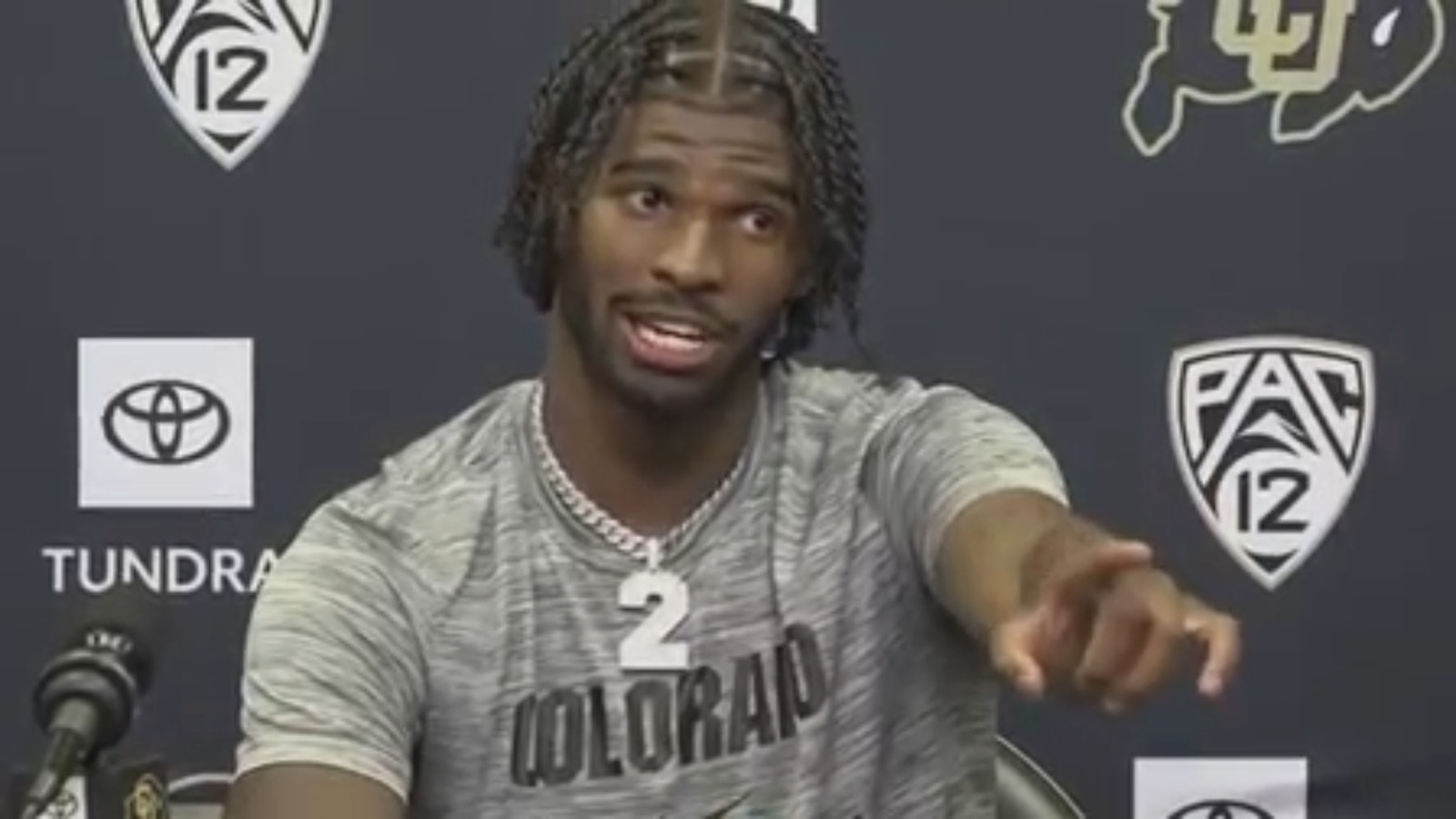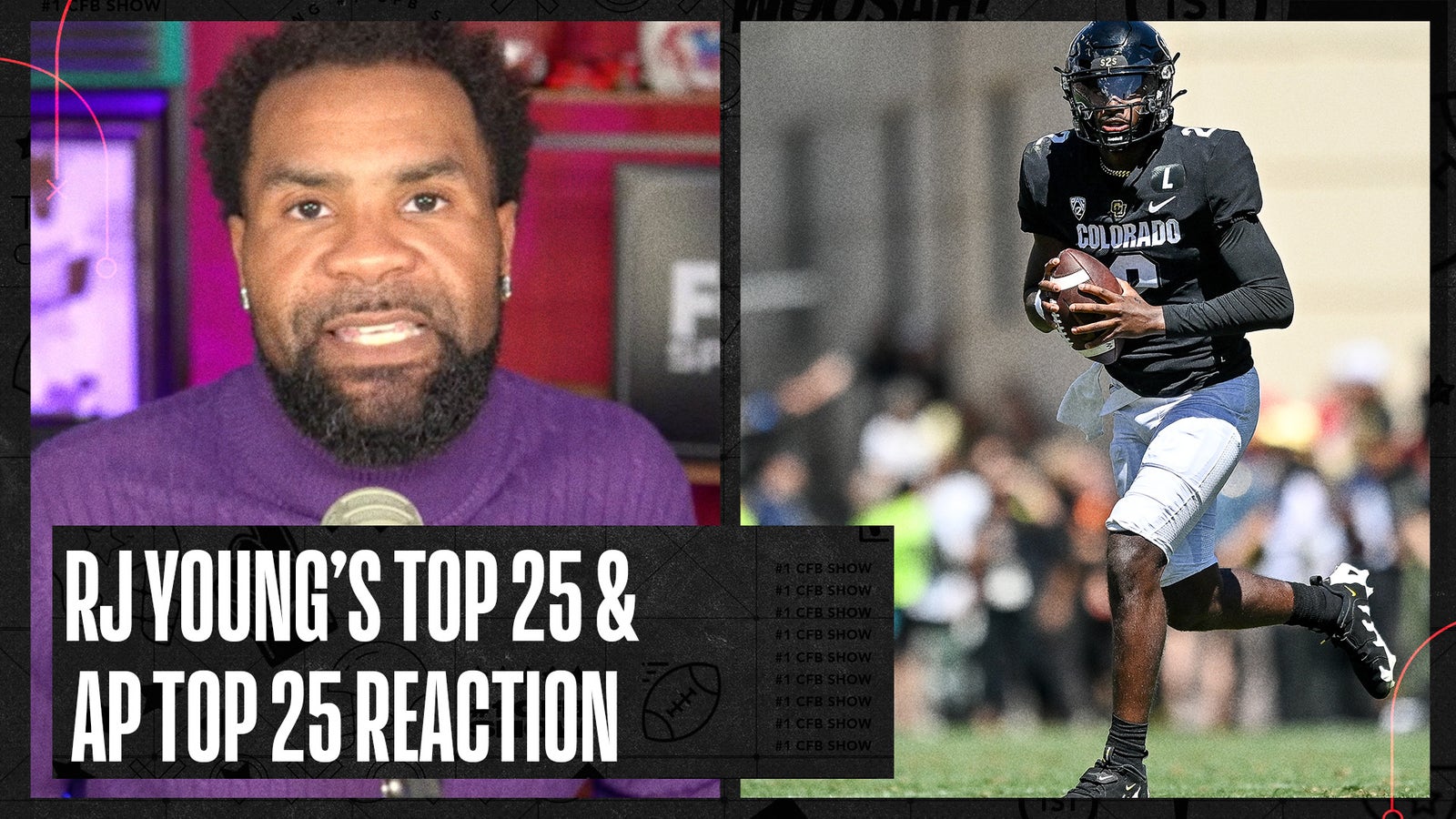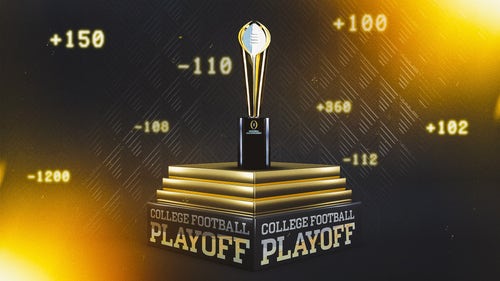
Colorado's high-octane offense is far from a two-man show: 'It's hard to stop all of us'
BOULDER, Colo. — The first person to enter the human tunnel during Saturday morning's Buff Walk at Franklin Field was Sean Lewis, a tall and bearded man who put his faith in everything Deion Sanders promised to build at Colorado.
Lewis, 37, was the head coach at Kent State when Sanders reached out regarding the Buffaloes' vacant offensive coordinator job. He'd amassed an overall record of 24-31 with the Golden Flashes and a 19-17 mark in conference play, even guiding Kent State to the MAC title game in 2021. But the chance to join Coach Prime's staff in Boulder, to coach the caliber of talent Sanders had already begun to attract — led, of course, by Sanders' son and burgeoning quarterback prospect Shedeur Sanders — was enticing enough for Lewis to step away and revert to his days as a coordinator.
"We just wanted to up the ante and go to the next level — and also take Shedeur to another level," Sanders said during his weekly news conference on Sept. 5. "And [Lewis] was ready. He was ready for the challenge. Not just with the play calling and the dynamics of the plays and the structure of the offense, but with the personnel as well. I mean, I've been telling you, ladies and gentlemen, we have some tremendous athletes on the offensive side of the ball."
At the center of that talent pool are Shedeur Sanders and hybrid wide receiver/cornerback Travis Hunter, the program's most high-profile additions via the transfer portal. They starred for Sanders a season ago at Jackson State, where the Tigers defeated Southern in the SWAC Championship Game, and anyone who expected the Colorado project to succeed viewed them as the likeliest focal points in 2023.
Far less certain was the eventual efficacy of the skill players around them, nearly all of whom came to Boulder from the transfer portal. But after back-to-back wins over Texas Christian and Nebraska — opponents who surrendered more than 1,000 combined yards to Lewis' offense — the Buffaloes have four players among the top 80 receivers nationally in Hunter, Xavier Weaver, Jimmy Horn Jr. and dual-threat tailback Dylan Edwards. To suggest that Colorado has one of the deepest groups of pass catchers in the country is no longer an exaggeration ahead of its Week 3 matchup with Colorado State.
"Our receiving corps is great, you know?" Weaver said after Saturday's 36-14 win over Nebraska. "It's hard to stop all of us. We've got too many weapons on the field at once."
A wide-open passing attack with numerous receiving threats is the blueprint Lewis has relied on since first becoming an offensive coordinator at Bowling Green in 2015, splitting the role with fellow assistant Mike Lynch. The Falcons finished fifth nationally in passing offense that season by averaging 366.8 yards per game, and the production was spread among four wideouts with at least 500 receiving yards and two who topped 1,000 yards in Roger Lewis (85 catches; 1,544 yards; 15 TDs) and Gehrig Dieter (94 catches; 1,033 yards; 10 TDs).
Over the next seven years, during stints as co-offensive coordinator at Syracuse and the head coach at Kent State, Lewis' offenses finished among the top 20 nationally in passing three times, highlighted by a 10th-place finish with the Golden Flashes in their pandemic-shortened 2020 campaign. During normal-length seasons, his teams produced an average of 2.86 players with at least 500 receiving yards and placed an average of 1.57 players among the country's top 100 receivers each year.
The Buffaloes are on pace to smash both of those figures.
"I think Sean Lewis is a great offensive coordinator," Nebraska head coach Matt Rhule said following Saturday's game. "They have a ton of skill. They've got a great young quarterback."
Small though this year's sample size may be, the advanced metrics from Colorado's first two games point toward clearly defined roles for each of Shedeur Sanders' four most popular targets, which in turn reflects the clarity of Lewis' system.
The primary field-stretchers are Weaver (16 catches, 288 yards, one TD) and Hunter (14 catches, 192 yards), both of whom have average depths of target exceeding 15 yards. Weaver, who joined the Buffaloes after four years at South Florida, is tied for sixth among players from the Power 5 conferences with five targets on passes traveling at least 20 yards, according to Pro Football Focus (PFF), while his average depth of 15.4 yards per target ranks 20th in the same group.
The intermediate areas belong to Horn, another transfer from South Florida, whose 19 catches for 181 yards and a score have an average depth of 6.9 yards per target. The underneath throws and check-downs go to Edwards, a freshman and former Notre Dame commit who was the second-best high school prospect in Sanders' first recruiting class. Edwards has transformed an average depth of just 1.3 yards per target into eight catches for 143 yards and three touchdowns.
"It's hard for the other team to play man (coverage)," Weaver said after catching 10 passes for 170 yards and a touchdown against the Cornhuskers. "If they want to play man, it's over with. They've gotta drop eight (into zone coverage). We practiced this coverage all week, and we just had to get the feel of it and get rolling. Once we started rolling, we ain't stop."
The data backs up Weaver's assertion that opponents who play man coverage against Colorado are likely asking for trouble, with few teams able to handle the agility and burst of the Buffaloes' three leading receivers. Weaver ranks third nationally among players from the Power 5 conferences with 19.6 yards per reception against man coverage, according to PFF, and Shedeur Sanders has completed five of the seven passes he's thrown in those scenarios. Horn isn't far behind with 12.7 yards per reception against man coverage — good enough for 11th nationally — and again Shedeur Sanders has flashed efficiency by connecting with him six times in eight attempts.
It's the kind of output Lewis might have envisioned while weighing Sanders' proposal to join the Buffaloes last December. And just imagine what they can do against the worst pass defense in the country this weekend.
"It's really just the connection we've built in such a short amount of time," Weaver said. "And it's getting better, I have to say. ... It's only going to keep growing."
Michael Cohen covers college football and basketball for FOX Sports with an emphasis on the Big Ten. Follow him on Twitter at @Michael_Cohen13.












